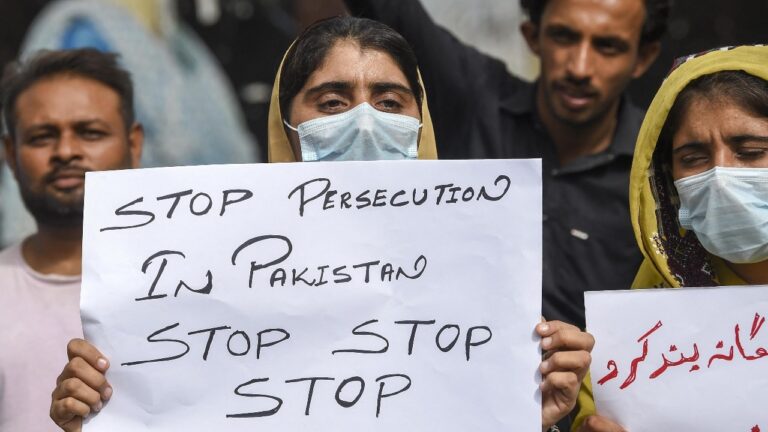Pakistan, which is keen to lecture other countries about minorities, has tried its best to provide for minorities in the Islamic Republic. Last year, Pakistan allocated PKR 100 million for the welfare of religious minority communities, but it was completely excluded from the 2024-25 federal budget without any explanation.
Pakistan’s minority leaders have criticised the government for not allocating funds for their welfare in the new national budget, saying it was a setback for the development of minorities such as Christians, Hindus and Sikhs, whose numbers are dwindling in any case.
Religious minorities such as Christians, Hindus and Sikhs make up less than 5 percent of Pakistan’s population of 244 million, with Hindus and Christians making up 1.6 percent each.
Pakistan’s 2024-25 federal budget was presented by Federal Finance Minister Muhammad Aurangzeb on June 12 and totaled 18.87 trillion rupees ($68 billion).
Increased support for Hajj pilgrims, but no support for minorities
The budget includes Rs1.861 billion for the Ministry of Religious Affairs and Interreligious Cooperation, up from Rs1.78 billion in the previous fiscal year. This allocation covers funds for Hajj pilgrims to Mecca.
However, the budgetary allocation for the welfare of religious minority communities, which was Rs 100 crore last year, was completely omitted this year without any explanation, UCA News reported.
Pakistan’s defense budget has increased by about 17 percent, bringing the total budget this year to about 2.12 trillion Pakistani rupees.
Zero funding for minorities hurts students
Minority leaders are concerned about the impact of the decision on students, especially those who rely on scholarships and support during religious holidays.
“The funds were insufficient from the beginning. Now the funds have completely disappeared, as has the Ministry of Minorities at the federal level. Our students will suffer. They need government support,” Ejaz Alam Augustine, a former Punjab minister for human rights and minority affairs, told UCA News.
In November 2008, Pakistan established its first Federal Ministry of Minorities.
Shahbaz Bhatti, a Catholic, was appointed minister but was assassinated in March 2011. The ministry was later replaced by the Ministry of National Harmony and Minority Affairs, which was eventually merged by the Pakistan Muslim League into the Ministry of Religious Affairs and Interreligious Harmony in 2013.
Sikh educationists criticised the new coalition government of the Pakistan Muslim League and the Pakistan People’s Party for not offering any hope.
“I have never seen any scheme specifically for the Sikh community. If any fund is announced, it will benefit larger communities like Christians in Punjab and Hindus in Sindh,” he said.
Ahmadiyyas continue to be persecuted in Pakistan
Ahmadiyya Islam, declared non-Islamic by Pakistan’s constitution in 1974, faces persecution from hardline Sunni Muslims.
“We don’t consider ourselves a minority, but the state’s policies affect us just the same,” Amir Mahmood, a spokesman for Pakistan’s Ahmadiyya community, said, UCA News reported.
Chaman Lal, chairman of the Samaj Sewa Foundation Pakistan, a Hindu welfare organisation, sees a bleak future for religious minorities.
“Cash transfers and small development schemes for minorities are declining while attacks on vulnerable communities are on the rise. They don’t care about us. They are succumbing to religious extremist groups but at least they can work towards socio-economic empowerment of minorities,” Lal said.
He also questioned the performance of minority representation in the state assembly.
Religious minorities such as Christians, Hindus and Sikhs make up less than 5 percent of Pakistan’s population of 241 million, with Hindus and Christians making up 1.6 percent each. Church sources say only 34 percent of religious minorities, including Christians, can read and write, and only about 4 percent have a university education. Only 18 percent of marginalized Dalits, officially known as scheduled castes, can read and write, Lal said, UCA News reported.

